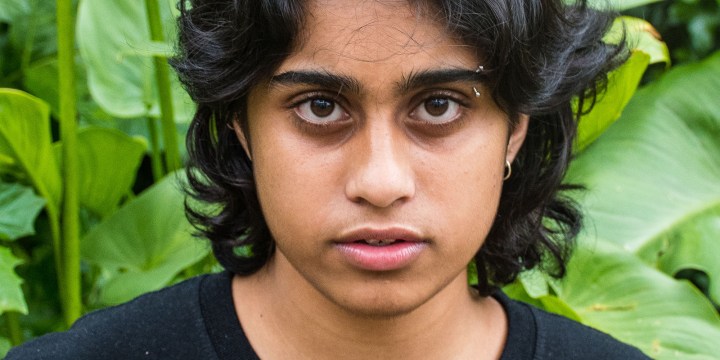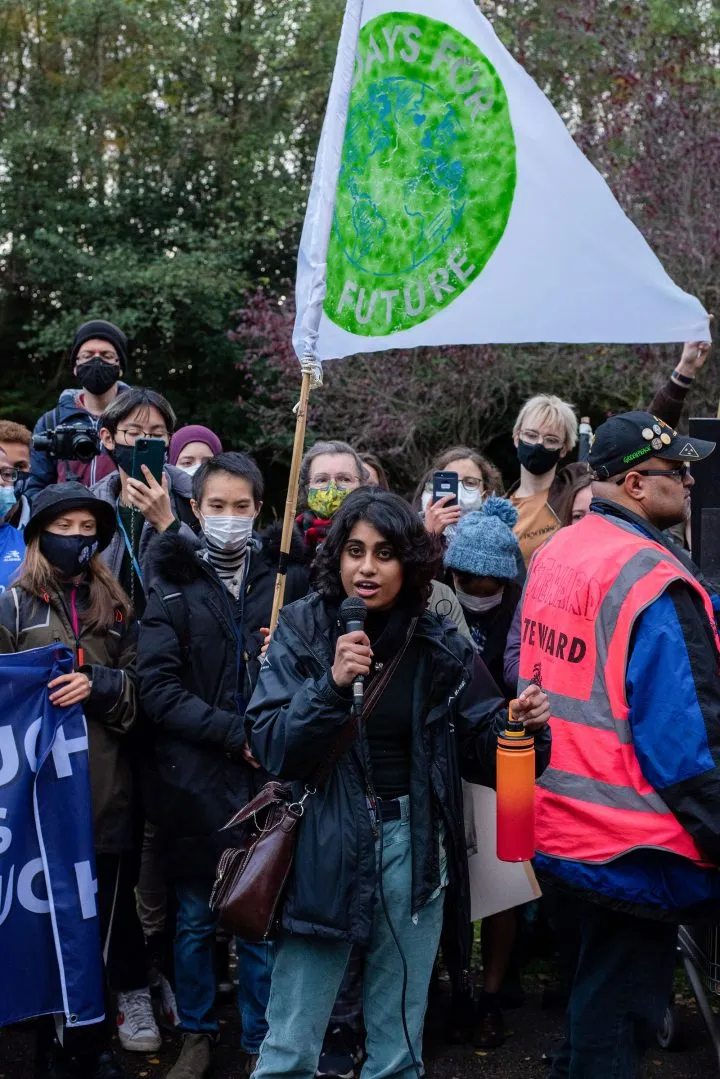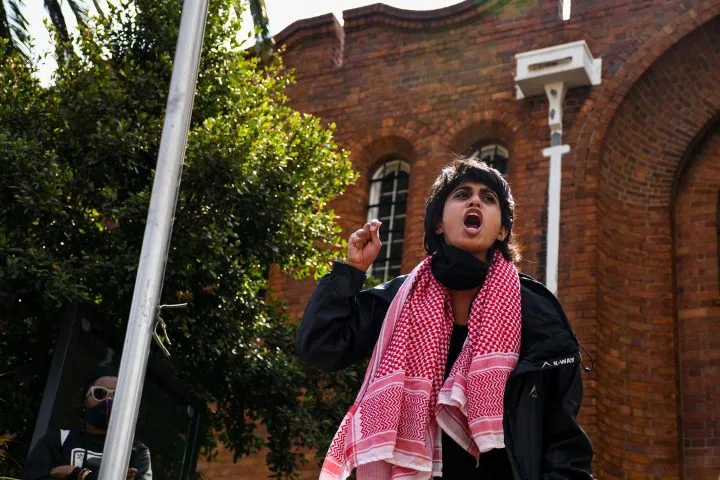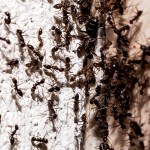ECOMAVERICK
‘I will not be your token’: SA activist Raeesah Noor-Mahomed stands up for marginalised voices at COP26 rally

The annual UN Climate Change Conference, which aims to bring together global leaders and activists to find solutions, has been criticised for being exclusive and westernised. This week, SA activist Raeesah Noor-Mahomed made sure marginalised voices were not ignored.
On Monday, at Festival Park, next to where the 26th United Nations Climate Change Conference (COP26) is being held in Glasgow, Scotland, activists from around the world gathered to amplify and give a platform to climate activists from Most Affected People and Areas (Mapa).
We heard lots of speeches by @Fridays4future activists in Festival Park today as #COP26 kicks off in Glasgow.
“When we look at the climate crisis, we can’t just look at it as a climate crisis because it is rooted in colonisation” – @raeesahnm (1/2) pic.twitter.com/5uNS7moQaw
— Kayle Crosson (@CrossonKayle) November 1, 2021
Among them was South African intersectional activist Raeesah Noor-Mahomed.
Noor-Mahomed told Our Burning Planet that despite being a demonstration aimed at spotlighting Mapa activists, the media were only interested in Greta Thunberg, the world-renowned Swedish environmental activist.
“When Greta arrived, all the cameras turned to her. So I took my megaphone and said, ‘Hi, excuse me. Sorry. Nicki [climate activists from Argentina] is over here. I can see you ignoring me. Nicki is over here.’ ”
The Fridays For Future members who organised the rally and press conference told the press that Thunberg wouldn’t be taking questions and to direct questions to Mapa activists.

‘Based on the gross, disgusting under-representation of Mapa activists, you guys don’t know anything about Mapa activists, and so you should be asking questions. Ask. We’re here,’ said Raeesah Noor-Mahomed to the press at a rally at COP26 on 1 November 2021. Greta Thunberg (left) looks on. (Photo: Pamela Elizarrarás Acitores)
“No one was asking questions,” said Noor-Mahomed, “so I took the mic and said, ‘Based on the gross, disgusting under-representation of Mapa activists, you guys don’t know anything about Mapa activists, and so you should be asking questions. Ask. We’re here.”
This is one of many examples of where the climate crisis is often viewed from a Western perspective and those who are most affected by the climate crisis are left out of the conversation.
Ugandan activist Vanessa Nakate made international headlines last year at a conference in Davos, Switzerland, when she was the only activist cropped out of a photo of white climate activists, including Thunberg.
Noor-Mahomed feels COP26 is another example of Mapa voices being left out of the climate conversation.
“Marginalised people are so often left out of spaces like this. If they aren’t physically excluded, it’s financial exclusion, the language barrier. I very much believe that COP is an exclusionary event.”
Noor-Mahomed said being a climate activist is a privilege because it means that you have the time and the capacity to advocate for measures to mitigate the climate crisis.
“Many people don’t have that time or the privilege to prioritise climate activism and the climate crisis… they’re just trying to get through their day-to-day lives.”
Noor-Mahomed said that many people can’t afford to take time off work, and the conference is often held in Western countries and is expensive to attend.
“If you do have access, it’s just sitting in, watching these politicians and corporations discuss things because you’re not even part of the discussions.”
Through the help of her fellow climate activist Eric Njuguna from Kenya, Noor-Mahomed received a badge to attend COP26, but didn’t have the funding to make it to Scotland.
However, once she told her friends in the Climate Justice Charter movement that she had secured a badge, they immediately began campaigning to raise funds for her flights and accommodation.
“Which is so different to, you know, when I first started boycotting, because I was sitting alone on a rock, and no one knew I was there. And now I’ve got all these people working and so willing to help,” said Noor-Mahomed.
The campaign was a success and enough funds were raised.
Noor-Mahomed said, “As grateful as I am, I am also angry. I am angry because we worked so hard to get me to COP, showing just how exclusionary conferences like COP are. Marginalised voices are left out. The discussions and decisions are not intersectional and not inclusive.”
Noor-Mahomed said she isn’t going to represent South African or other climate activists.
“I’m representing Rae. I’m not going there representing South African youth. I’m not going to represent people of colour. I’m not representing climate activists. I’m only representing me, because… everyone else should be able to represent themselves.”
Along with being inaccessible to the global south, Noor-Mahomed explained that COP gets a lot of flak for not making real change and considering the climate crisis through a Western lens in the context of the global north.
“The thing is, all these important discussions are happening and decisions are being made, but how can it actually change anything if none of the important people are there?” asked Noor-Mohamed.
“All the important people are at home because they were excluded. And if these decisions are decisions that are going to affect marginalised people the most, why aren’t they part of it?”
Thunberg agreed, saying at the rally, “Change is not going to come from inside there [conference]. That is not leadership. This is leadership.”
Climate activist Patience Nabukalu from Uganda said during the rally, “Across Africa there have been floods, wildfires, heat waves, severe droughts and more. This is our reality. Africa is suffering.
“The battle is far from over. But this year presents an opportunity to do things differently… an opportunity to hold out a microphone to those whose voices matter most, to those who dread the rains.”
Noor-Mahomed said at the rally, “I call myself an intersectional activist because I believe that nothing can be viewed in isolation.”
Noor-Mahomed said that when her climate activism began in 2019 and she started learning more about the climate crisis, she began realising how everything is connected, how climate justice is social justice and how important an intersectional approach is.
“When the Australia fires were happening in 2020 and I got really angry because I was starting to make these connections… like I learnt in geography that South Africa also gets fires. And if Australia was struggling, if a fire like that happened in South Africa, it would be marginalised people who are most affected and South Africa wouldn’t have the resources to recover from that.”
After witnessing the devastation the wildfires in Australia caused, Noor-Mahomed decided to boycott school every Friday, sitting on a rock outside her school gates, until the Department of Environmental Affairs declared a climate emergency.

Raeesah Noor-Mahomed at a protest Constitution Hill, Johannesburg in September 2020. Noor-Mahomed has had a strong voice in the climate movement, first making headlines when she boycotted school in early 2020. (Photo: Julia Evans)
Despite making waves in the media and garnering the attention of Minister Barbara Creecy, Noor-Mahomed does not want to be an inspiration.
“One thing that young climate activists have been getting really angry about is being called inspiring,” she said. “We’re tired of being told that we’re the leaders of tomorrow, we’re tired of being told that the youth are leading the future. Because we shouldn’t be doing this.
“We don’t want to hear how your generation messed up and we’re going to change things; because yeah, your generation did mess up, and we shouldn’t be here. We don’t want to hear how inspiring we are. We want change.
“My message going there is: I will not be your token,” reflected Noor-Mahomed before she left for the conference.
“I will not allow them to use me to get ‘diversity points’. I will not allow them to use me to show that they’re inclusive. People from the global south had to fight to get there and when we go, we will not be silent.” DM/OBP
[hearken id=”daily-maverick/8821″]






















 Become an Insider
Become an Insider
Africa the continent that has contributed the least greenhouse gases suffers the most – the west got rich and polluted the world in the process: all the talk but they want to.preserve their profits and lifestyle which is a contradiction. Listen to BP CEO on BBC. Note all the new oil fields that are being explored. It’s hard to feel optimistic.